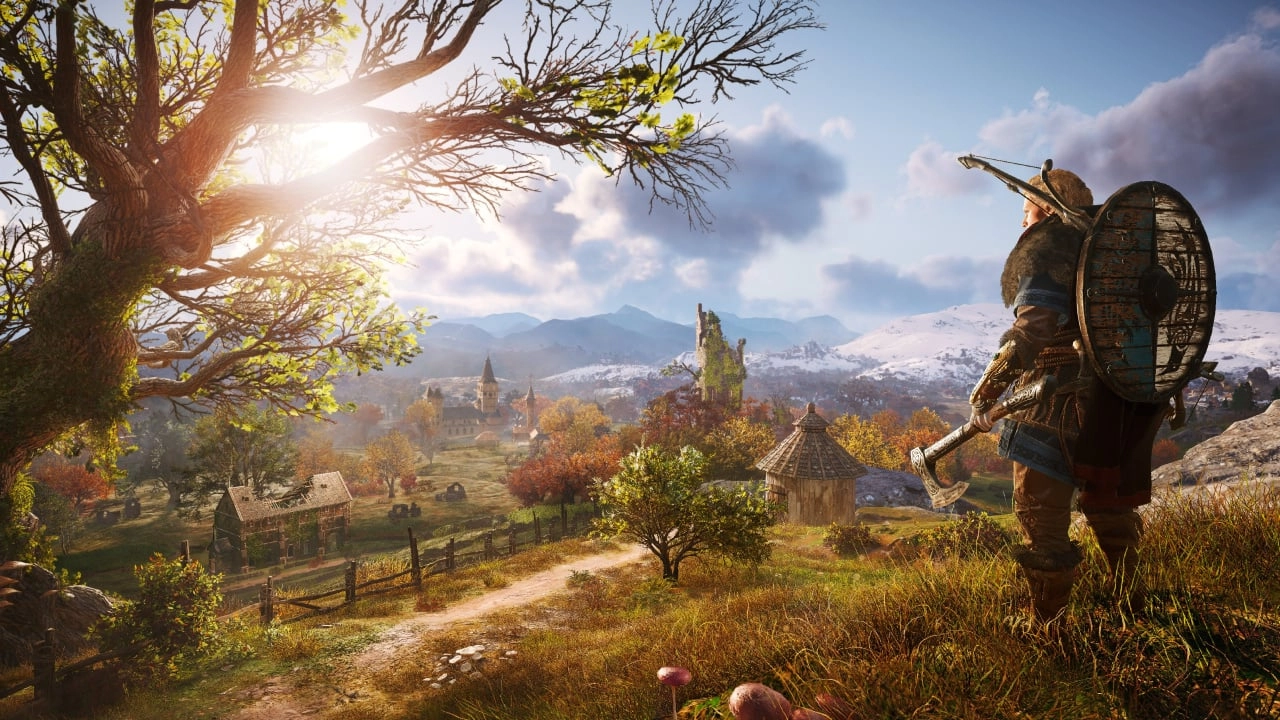
In the world of video games, the evolution of a popular series can trigger significant discussion and debate among its fan base. Such is the case with Ubisoft's renowned action-adventure franchise, Assassin's Creed. The series, which initially carved its niche as a stealth-oriented, action-driven experience, took a significant turn in 2017 with the release of Assassin's Creed Origins. This title marked the beginning of a new era for the franchise, introducing role-playing game (RPG) elements that would shape its future entries. The most recent reminder of this shift comes as Assassin's Creed Valhalla is set to join the Xbox Game Pass on January 9th.
The change in direction has been polarizing. Some players have embraced the expansive worlds, deeper character customization, and intricate narratives that come with RPGs. Others have yearned for the series' previous format, which focused on concise storytelling and a tighter scope of gameplay. This divergence in preference has been rekindled with the upcoming availability of Assassin's Creed Valhalla on Xbox Game Pass.
Assassin's Creed Valhalla perpetuates the RPG framework laid by its predecessors, Origins and Odyssey. However, it also brings its own flair with a Viking-themed storyline and a captivating setting that has appealed to a vast audience. Despite following a similar formula, Valhalla has been widely praised for its execution, exemplified by a glowing review from our resident reviewer in 2020. The game puts players in the shoes of Eivor, a Viking raider, who leads their clan from the icy shores of Norway to establish a new home among the fractured kingdoms of England.
The decision to shift Assassin's Creed into RPG territory wasn't merely a cosmetic one. It involved rethinking core gameplay mechanics, such as combat and exploration, and required developers to create richly detailed worlds teeming with activities and side quests. This move towards RPGs has resulted in games that offer dozens—if not hundreds—of hours of content, a stark contrast to the series' more linear origins.
In parallel to the expansive RPG entries, Ubisoft also catered to fans of the earlier games' style with Assassin's Creed Mirage. This title served as a budget-friendly spin-off, reverting back to a focus on stealth and a more contained experience, akin to the series' roots. While not as grand in scope as the RPG iterations, it was a nod to longtime fans who preferred the classic approach to Assassin's Creed.
These varying approaches to the Assassin's Creed franchise have sparked discussions within the gaming community. The question of which direction is the 'correct' one for the series has ignited a plethora of opinions. With some players dedicated to the RPG-styled games and others firm in their affinity for the original formula, the series seems to have reached a crossroads.
Valhalla's entrance to the Xbox Game Pass is not only a boon for subscribers but also an opportunity for newcomers to experience the latest phase of Assassin's Creed as an RPG. The addition of the Viking saga to the Game Pass library implies that subscribers will be privy to one of the franchise's most praised titles without additional cost.
Ubisoft's strategy of shifting towards RPGs with Assassin's Creed has been part of a broader trend in the industry, where games are becoming more expansive and immersive. The emphasis on player choice, sprawling narratives, and intricate worlds suggests that gamers now seek experiences that transcend mere action, providing a sandbox that mirrors the complexity and unpredictability of real life.
As with any long-standing series, each new iteration of Assassin's Creed invites both critique and admiration. The pivot to RPGs demonstrates a willingness on Ubisoft's part to innovate and adapt to changing gaming landscapes and player expectations. Whether one favors the sprawling domains of Valhalla or the narrow lanes of the original Assassin's Creed games, the series offers a testament to how video games can evolve over time, catering to a broad spectrum of tastes and preferences.
The conversation surrounding Assassin's Creed, prompted by the addition of Valhalla to Xbox Game Pass, reflects a larger discussion in gaming. It centers on the balance between preserving the core essence of a franchise and pushing its boundaries. The reception of Assassin's Creed Valhalla among subscribers to the Game Pass will not only measure the success of this particular title but will also give insight into the future trajectory of this enduring series. As gamers weigh in on their preferences, the legacy of Assassin's Creed continues to be written, one epic—or stealthy—adventure at a time.
You must be logged in to post a comment!